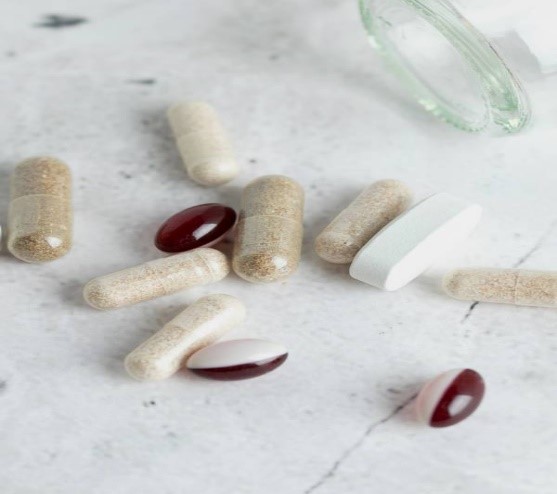
The immune system is the key to your overall health and especially now during a global pandemic, everyone is wondering how they can strengthen their immune system.
According to the Cleveland Clinic, the immune system is a network of organs, white blood cells, proteins (antibodies), and chemicals. It works to protect your body from bacteria, viruses, parasites, and fungi that cause infection and illness.
But since our bodies are different, that means our immune systems are different, too. “Signs that a person has a weak immune system is truly individual,” explains Maya Feller, MS, RD, CDN, of Brooklyn-based Maya Feller Nutrition. “If you are experiencing significant systemic changes or onset of symptoms, it is important to seek out the help and guidance from your primary care provider or specialist so they can help determine the appropriate course of action.”
- Vitamins D
- Vitamin C and B-Complex
- Zinc
- N-Acetyl Cysteine, Probiotics and Astragalus.
VITAMIN D and COVID-19
We have known for a long time that it is important to maintain healthy Vitamin D levels for bone health, cardio metabolic health, and a strong immune system.
There is emerging evidence that Vitamin D deficiency may be relevant to the risk of developing COVID-19 infection and to the severity of the disease based on information from Dr. Joanne Manson, Professor of Medicine at Harvard Medical School. It was found that there was about an eight-fold higher risk of having severe illness among those who entered with Vitamin D deficiency compared with those who had sufficient Vitamin D levels.
Additionally, a recent publication in the British Medical Journal indicated that those participants in a study who had normal Vitamin D levels had a 70% lower risk of respiratory infection than those with significant Vitamin D deficiencies.
It is important to be outdoors and physically active, while maintaining social distancing. This will lead to increased synthesis of Vitamin D in the skin, just from the incidental sun exposure.
It is recommend to begin dosing with 5000 IUs (125 mcg) a day; people with autoimmune diseases should probably start with 10,000 IUs a day,” says Steven Gundry, MD, author, medical director at the International Heart and Lung Institute, and founder of GundryMD. Sources for Vit D information at www.VitaminDCouncil.com
VITAMIN C
Rationale for Using Vitamin C in Patients With COVID-19
Vitamin C (ascorbic acid) is a water-soluble vitamin that is thought to have beneficial effects in patients with severe and critical illnesses. It is an antioxidant and free radical scavenger that has anti-inflammatory properties, influences cellular immunity and vascular integrity, and serves as a cofactor in the generation of endogenous catecholamines.
Because humans may require more vitamin C in states of oxidative stress, vitamin C supplementation has been evaluated in numerous disease states, including serious infections and sepsis.
Because serious COVID-19 may cause sepsis and acute respiratory distress syndrome (ARDS), the potential role of high doses of vitamin C in ameliorating inflammation and vascular injury in patients with COVID-19 is being studied. Consuming foods and nutrients with Vitamin C has shown to help in recovery by its positive impact on cellular repair.
Vitamin B Complex
“B vitamins—particularly vitamin B6, vitamin B9 (or folic acid), and vitamin B12—support strong immune function,” explains Serena Poon, CN, CHC, CHN, chef, nutritionist, and founder of the Culinary Alchemy program.
“A deficiency of vitamin B6 is associated with a decrease in antibody production among other immune system–weakening functions. A deficiency in vitamins B9 and B12 can ‘drastically alter immune responses’ through a variety of processes.
Vitamin B12 is solely found in animal products, so a vitamin B12 supplement is particularly important if you are a vegan or vegetarian.”
Zinc
Zinc is an essential mineral that must be consumed via diet and that you need to consume it daily since the body lacks the ability to store the mineral. “Zinc supports the functioning of immune cells like neutrophils and macrophages,” she explains. “As a result, a zinc deficiency can lead to a higher risk of infections.
Zinc is thought to potentially drive down the duration and severity of symptoms associated with the common cold by preventing the entry of the virus into cells and stopping it from multiplying in the body.”
Vanessa Rissetto, MS, RD, a registered dietitian nutritionist and co-founder of Culina Health, adds that zinc can help symptoms like nasal congestion, nasal drainage, sore throat, and coughing.
Prebiotics and Probiotics
The digestive system and the immune system are interconnected, and a balanced digestive system is crucial for immune function.
Along with eating a diet rich in vegetables and fruits, adding probiotics to your diet can support your digestive tract by adding good bacteria that supports a balanced microbiome. Prebiotics are fibers that act as fuel for probiotics.
N-Acetyl Cysteine NAC
This supplement that supports detoxification, respiratory health, and muscle recovery after workouts. NAC is a precursor to glutathione, the body’s most powerful antioxidant particular for the liver.
Astragalus
This plant has been used in Chinese medicine for thousands of years, and has many evidence-backed benefits, including immune support, heart disease and diabetes prevention, and increasing strength and stamina.
It’s important to note that people who are on immunosuppressants, anticoagulants, and diuretic medications should not take astragalus.
Final Thoughts About Immunity.
Leaky Gut Syndrome or as it’s referred to in medical literature, “increased intestinal permeability” is a recognized risk factor for autoimmune dysfunction and considered by many professionals a hidden epidemic.
More than ever, its vital that we focus on a healthy gut lining by reducing any gut permeability, as experts feel this is the foundation of a strong immune system. Most nutritional experts recommend focusing on removing inflammatory foods, repairing the gut lining with medical foods and nutrients, and restoring a proper bacterial balance.
Schedule a courtesy phone consultation to discuss any questions about boosting your immune system.

